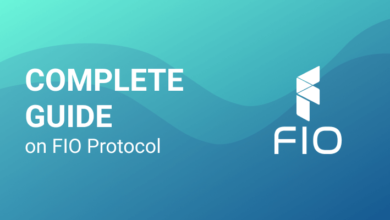Navigating the Gig Economy: Understanding Loan Options for Independent Contractors

The gig economy has transformed the panorama of labor, offering flexibility and autonomy to hundreds of thousands of unbiased contractors around the sector. However, with this freedom frequently comes economic uncertainty, as gig workers navigate fluctuations in profits and abnormal pay schedules. In such occasions, having access to loans can be an essential useful resource for preserving stability and seizing opportunities for boom.
In this article, we can explore the challenges confronted via unbiased contractors in the gig economic system and observe the numerous loan options available to help their economic needs.
The Rise of the Gig Economy
The gig economic system, characterized via brief-term contracts and freelance work, has skilled explosive growth in recent years. Enabled by way of generation platforms and digital marketplaces, independent contractors have determined possibilities in diverse sectors which include ridesharing, meals delivery, freelance writing, graphic layout, and extra. The gig financial system gives flexibility, allowing people to work on their own phrases and pursue multiple earnings streams concurrently.
Challenges Faced by Independent Contractors
While the gig economy gives freedom and flexibility, it also presents specific challenges for impartial contractors, especially in phrases of economic stability. Key demanding situations encompass:
Income Variability: Gig employees frequently face abnormal income streams, with profits fluctuating from week to week or month to month. This variability can make it tough to budget and plan for fees, leading to financial pressure and uncertainty.
Limited Access to Traditional Financing: Traditional lenders inclusive of banks and credit score unions can be hesitant to increase credit score to gig people due to their non-conventional profits sources and absence of strong employment. This limited admission to financing can avoid gig people’ capacity to collect surprising charges or put money into their agencies.
Lack of Benefits: Unlike conventional employees, gig workers generally no longer get hold of advantages together with medical insurance, retirement plans, or paid days off. This loss of economic protection can depart unbiased contractors prone in times of infection, injury, or monetary downturns.
Understanding Loan Options for Independent Contractors
Despite the demanding situations they face, unbiased contractors have numerous loan alternatives available to them. These alternatives cater to their specific monetary situations and offer admission to a great deal-needed capital. Some commonplace mortgage alternatives for gig people encompass:
Personal Loans: Personal loans are unsecured loans that may be used for numerous purposes, including overlapping emergency expenses, consolidating debt, or investing in commercial enterprise boom. Independent contractors can follow for personal loans from banks, credit score unions, online lenders, or peer-to-peer lending systems. Personal loans are typically based totally on the borrower’s credit records and income stage.
Microloans: Microloans are small, short-time period loans designed to satisfy the financing wishes of small companies and entrepreneurs. These loans are often provided with the aid of nonprofit corporations, community improvement monetary institutions (CDFIs), or online lenders. Microloans may be used for getting devices, supplies, or stock, as well as protecting running expenses or launching a brand new enterprise challenge.
Invoice Financing: Invoice financing, also called accounts receivable financing, lets in gig people to borrow towards great invoices or debts receivable. This sort of financing is particularly beneficial for freelancers and impartial contractors who work on a venture basis and invoice customers for his or her services. Invoice financing provides on the spot entry to coins waft, permitting gig employees to cowl expenses whilst watching for client bills to be processed.
Peer-to-Peer Lending: Peer-to-peer (P2P) lending structures connect borrowers directly with man or woman investors willing to fund their loans. Independent contractors can practice for P2P loans online and acquire investment from more than one buyer, regularly at aggressive hobby prices. P2P lending gives an opportunity for financing for gig workers who may additionally have problems getting access to traditional bank loans.
Business Lines of Credit: Business lines of credit offer flexible admission to funds that can be drawn upon as wished. Independent contractors can use a commercial enterprise line of credit score to cover brief-term fees, manage cash drift fluctuations, or capture possibilities for commercial enterprise increase. Business traces of credit score are to be had from banks, credit score unions, and online creditors, and may be secured or unsecured relying on the borrower’s creditworthiness.
Conclusion
In the gig financial system, where profits variability and monetary uncertainty are common challenges, know-how the to be had loan options is important for unbiased contractors to navigate their financial wishes efficiently. Whether having access to personal loans, microloans, invoice financing, peer-to-peer lending, or business lines of credit, gig people have got right of entry to a number financing answers tailor-made to their unique occasions. By leveraging those mortgage alternatives responsibly, independent contractors can control cash, go with the flow, cover costs, and spend money on their agencies, in the end attaining more economic balance and success in the gig economy.



